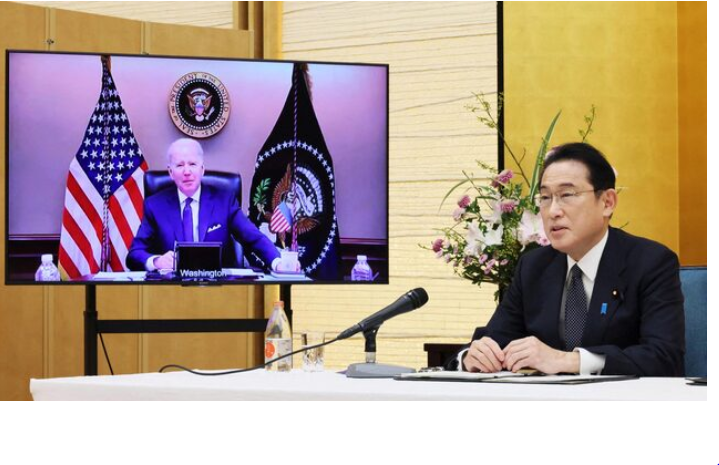China Accuses U.S. of Interference Following
In a recent escalation of diplomatic tensions, China has accused the United States of unwarranted interference in its internal affairs, following U.S. comments commemorating the anniversary of the Tiananmen Square crackdown. This development marks yet another chapter in the ongoing saga of strained Sino-American relations, where historical grievances and geopolitical rivalry often intersect.
Historical Context: The Tiananmen Square Incident
The Tiananmen Square incident of June 4, 1989, remains one of the most controversial and sensitive topics in Chinese political history. On this date, Chinese military forces violently suppressed pro-democracy protests in Beijing’s central square, resulting in a still-unknown number of casualties. The Chinese government has maintained a tight lid on information regarding the incident, branding it a necessary measure to maintain stability and order. In contrast, much of the international community, including the United States, views the event as a tragic suppression of democratic aspirations.
The U.S. Remarks: A Catalyst for Controversy
Every year, as the anniversary of the Tiananmen Square incident approaches, the U.S. government, along with various human rights organizations, issues statements remembering the victims and calling for greater transparency and democratic reforms in China. This year was no exception. U.S. Secretary of State Antony Blinken’s statement, which highlighted the bravery of the protesters and reiterated calls for Beijing to acknowledge the events publicly, was met with swift and vehement criticism from Chinese officials.
Blinken’s remarks emphasized the U.S. commitment to human rights and democratic values, noting that the events of June 4, 1989, should never be forgotten. He called on the Chinese government to release all those still imprisoned for their roles in the protests, to account for those who were killed or went missing, and to cease its ongoing harassment of survivors and their families. 
for more information click on this link
I
Response: Accusations of Interference
n a strongly worded rebuttal, Chinese Foreign Ministry spokesperson Wang Wenbin accused the United States of “grossly interfering” in China’s internal affairs. Wang asserted that the U.S. had no right to lecture China on human rights, given its own history of racial discrimination and social injustice. He argued that the U.S. was using the Tiananmen anniversary as a pretext to undermine China’s stability and tarnish its international image.
“China has long ago reached a clear conclusion about the political disturbance in the late 1980s,” Wang stated. “The U.S. should reflect on its own problems and stop acting as the world’s policeman.”
The Chinese government often frames external criticism of its human rights record as attempts to destabilize the country and impede its development. This rhetoric aligns with Beijing’s broader narrative of Western powers trying to contain China’s rise by exploiting sensitive issues.
Diplomatic Repercussions: More Than Just Words
The exchange China Accuses over Tiananmen is symptomatic of deeper, more entrenched issues in Sino-American relations. These include trade disputes, technological competition, military posturing in the South China Sea, and differing approaches to global governance. The frequency and intensity of these disputes have only increased in recent years, reflecting a broader strategic competition between the two superpowers.
The U.S. statements on Tiananmen also serve a dual purpose: they reaffirm American commitment to human rights and democratic values, while simultaneously challenging China’s narrative on the international stage. For China, such remarks are not merely rhetorical irritants but potential threats to its domestic legitimacy and social stability.
The Role of Public Opinion and Media
Public opinion and media China Accuses play crucial roles in shaping and reflecting the discourse on sensitive historical events like Tiananmen. In China, the state tightly controls the narrative, censoring discussions and preventing any public commemoration of the events. In contrast, in the U.S. and other Western countries, media and civil society actively remember and debate the incident, often using it as a benchmark for critiquing Chinese governance.
The stark difference in how the incident is China Accuses remembered and discussed in the two countries contributes to mutual misunderstandings and reinforces existing prejudices. For many Chinese citizens, the government’s portrayal of the events as a necessary action to preserve national stability is the only narrative they know. Conversely, many in the West view the suppression as emblematic of broader authoritarian tendencies in China’s political system.
Moving Forward: Prospects for Sino-American Relations
The ongoing friction over historical China Accuses and human rights issues suggests that Sino-American relations will remain contentious for the foreseeable future. Both nations have shown little willingness to compromise on their core values and strategic interests. For the U.S., promoting human rights and democratic values is a fundamental aspect of its foreign policy. For China, maintaining political stability and sovereignty, often defined in opposition to Western interference, is paramount.
Diplomatic dialogues, while fraught with tension, remain essential. Both countries must navigate their differences carefully to avoid escalating conflicts. Constructive engagement on global issues such as climate change, pandemics, and economic stability could serve as avenues for cooperation amidst broader rivalry.
In the short term, however, incidents like the Tiananmen anniversary remarks are likely to continue sparking diplomatic confrontations. As both nations prepare for future geopolitical challenges, understanding and managing these historical and ideological divides will be critical to maintaining global stability and peace.
Conclusion: A Complex and Multifaceted Relationship
The accusations and counter-accusations surrounding the Tiananmen remarks highlight the complexity of Sino-American relations. This relationship is marked by a blend of cooperation and competition, mutual interests and profound differences. As China and the U.S. navigate this intricate dynamic, the world watches closely, aware that the interactions between these two powers will significantly shape the global order in the 21st century.
Understanding the nuances of each nation’s perspective, acknowledging the historical contexts, and striving for open, honest dialogue will be essential steps in managing this pivotal bilateral relationship. Only through such efforts can both countries hope to address their differences and work towards a more stable and cooperative international environmen